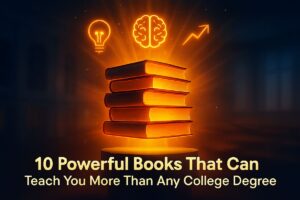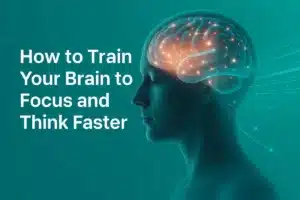Looking for the best self improvement books to read for free? Whether you want to build better habits, boost productivity, develop emotional intelligence, or achieve financial success, self-help books can guide you—without costing a penny!
In this blog, we’ll explore the top self help books available for free, covering mindset, productivity, success, and relationships. Let’s dive in!
Why Read Self Improvement Books?
Self-help books offer powerful insights from experts who have studied success, happiness, and personal growth. Here’s why they’re worth reading:
-
Develop a growth mindset to overcome challenges.
-
Boost productivity with proven time-management strategies.
-
Learn financial principles to build wealth.
-
Improve relationships through emotional intelligence.
Reading self improvement books is like having a mentor guiding you for free!
| Category | Book Title | Author | Key Focus | Free Availability |
|---|---|---|---|---|
| Mindset & Growth | Mindset | Carol S. Dweck | Fixed vs. Growth Mindset | Open Library, Google Books |
| Atomic Habits | James Clear | Habit Formation | PDF Drive, Open Library | |
| The Power of Now | Eckhart Tolle | Mindfulness | Z-Library, Project Gutenberg | |
| Productivity | Deep Work | Cal Newport | Focus & Concentration | Open Library |
| Eat That Frog! | Brian Tracy | Procrastination | PDF Drive | |
| Success & Wealth | Think and Grow Rich | Napoleon Hill | Wealth Mindset (Public Domain) | Project Gutenberg |
| Rich Dad Poor Dad | Robert Kiyosaki | Financial Literacy | PDF Drive | |
| Relationships | How to Win Friends… | Dale Carnegie | Social Skills | Internet Archive |
| The Four Agreements | Don Miguel Ruiz | Personal Freedom | Open Library | |
| Free Classics | Meditations | Marcus Aurelius | Stoic Philosophy | Project Gutenberg |
Best Free Self Improvement Books for 2025
🧠 Mindset & Personal Growth
1. “Mindset” by Carol S. Dweck
Why Read It? Explains the difference between a fixed vs. growth mindset and how it impacts success.
Key Takeaways:
-
People with a growth mindset achieve more.
-
Failure is a learning opportunity, not the end.
Where to Read for Free: Google Books Preview, Open Library.
2. “Atomic Habits” by James Clear
Why Read It? Teaches how tiny habits lead to massive changes.
Key Takeaways:
-
Focus on 1% improvements daily.
-
Use the 4 Laws of Behavior Change to build habits.
Where to Read for Free: PDF Drive, Open Library.
3. “The Power of Now” by Eckhart Tolle
Why Read It? Helps you live in the present and reduce stress.
Key Takeaways:
-
Stop overthinking and enjoy the present moment.
-
Practice mindfulness for a happier life.
Where to Read for Free: Z-Library, Project Gutenberg.
4. “The 7 Habits of Highly Effective People” by Stephen R. Covey
Why Read It? A step-by-step guide to personal and professional success.
Key Takeaways:
-
Be proactive instead of reactive.
-
Prioritize important tasks (Time Management Matrix).
Where to Read for Free: PDF Drive, Open Library.
5. “Can’t Hurt Me” by David Goggins
Why Read It? A raw, motivational book on pushing past limits.
Key Takeaways:
-
Embrace discomfort to grow stronger.
-
Mental toughness is a skill you can develop.
Where to Read for Free: Check audiobook versions on LibriVox.
📘 Productivity & Focus
1. “Deep Work” by Cal Newport
Why Read It? Learn how to focus without distractions.
Key Takeaways:
-
Eliminate shallow work to boost productivity.
-
Schedule deep work sessions for maximum efficiency.
Where to Read for Free: Open Library, Google Books Preview.
2. “Eat That Frog!” by Brian Tracy
Why Read It? A short, powerful book on overcoming procrastination.
Key Takeaways:
-
Tackle your hardest task first (“eat the frog”).
-
Prioritize tasks using the ABCDE method.
Where to Read for Free: PDF Drive, Z-Library.
3. “The One Thing” by Gary Keller
Why Read It? Focuses on achieving success by doing less but better.
Key Takeaways:
-
Identify your ONE most important task daily.
-
Avoid multitasking—it reduces productivity.
Where to Read for Free: Open Library, Google Books.
4. “Getting Things Done” by David Allen
Why Read It? A proven system for stress-free productivity.
Key Takeaways:
-
Capture all tasks in a trusted system.
-
Break projects into actionable steps.
Where to Read for Free: Check PDF Drive, Internet Archive.
5. “Essentialism” by Greg McKeown
Why Read It? Teaches how to focus on what truly matters.
Key Takeaways:
-
Do less, but better.
-
Eliminate non-essential tasks.
Where to Read for Free: Google Books Preview, Open Library.
💡 Success, Wealth & Motivation
1. “Think and Grow Rich” by Napoleon Hill
Why Read It? A classic on wealth-building and success mindset.
Key Takeaways:
-
Thoughts become reality—visualize success.
-
Master the 13 principles of wealth.
Where to Read for Free: Project Gutenberg (Public Domain).
2. “Rich Dad Poor Dad” by Robert Kiyosaki
Why Read It? Challenges traditional views on money.
Key Takeaways:
-
Assets vs. liabilities—build income-generating assets.
-
Financial education is key to wealth.
Where to Read for Free: Check PDF Drive, Z-Library.
3. “The Magic of Thinking Big” by David J. Schwartz
Why Read It? Shows how belief shapes success.
Key Takeaways:
-
Think bigger to achieve more.
-
Overcome self-doubt and fear.
Where to Read for Free: Open Library, Google Books.
4. “You Are a Badass” by Jen Sincero
Why Read It? A fun, motivational book on self-confidence.
Key Takeaways:
-
Stop self-sabotage and embrace your potential.
-
Take action—success starts with belief.
Where to Read for Free: Check audiobook versions on LibriVox.
5. “The Millionaire Fastlane” by MJ DeMarco
Why Read It? A no-BS guide to building wealth fast.
Key Takeaways:
-
Avoid the “slow lane” (9-5 mindset).
-
Build scalable income systems.
Where to Read for Free: PDF Drive, Z-Library.
💬 Emotional Intelligence & Relationships
1. “Emotional Intelligence” by Daniel Goleman
Why Read It? Explains why EQ matters more than IQ.
Key Takeaways:
-
Manage emotions for better decision-making.
-
Improve empathy and social skills.
Where to Read for Free: Open Library, Google Books.
2. “The Subtle Art of Not Giving a F*ck” by Mark Manson
Why Read It? A blunt take on living a meaningful life.
Key Takeaways:
-
Choose what to care about—avoid unnecessary stress.
-
Embrace struggles as part of growth.
Where to Read for Free: PDF Drive, Z-Library.
3. “How to Win Friends and Influence People” by Dale Carnegie
Why Read It? The ultimate guide to social success.
Key Takeaways:
-
Listen more, talk less to connect with people.
-
Avoid criticism—focus on appreciation.
Where to Read for Free: Internet Archive, LibriVox (audiobook).
4. “Daring Greatly” by Brené Brown
Why Read It? Explores vulnerability as a strength.
Key Takeaways:
-
Embrace imperfection to live fully.
-
Shame resilience = greater confidence.
Where to Read for Free: Google Books Preview, Open Library.
5. “The Four Agreements” by Don Miguel Ruiz
Why Read It? A simple but profound guide to personal freedom.
Key Takeaways:
-
Be impeccable with your word.
-
Don’t take things personally.
Where to Read for Free: PDF Drive, Open Library.
📚 Free Self Improvement Books (Legally Available)
These books are in the public domain or available for free legally:
-
“Think and Grow Rich” – Project Gutenberg
-
“As a Man Thinketh” by James Allen – Short and powerful
-
“The Science of Getting Rich” by Wallace D. Wattles
-
“Meditations” by Marcus Aurelius – Ancient Stoic wisdom
-
“Self-Reliance” by Ralph Waldo Emerson
Where to Find Free Self Help Books
| Website | What It Offers |
|---|---|
| Project Gutenberg | Free public domain books |
| Open Library | Borrow eBooks for free |
| PDF Drive | Free PDF downloads |
| Z-Library | Large collection of free books |
| LibriVox | Free audiobooks |
How to Get the Most Out of Self Improvement Books
-
Take Notes – Highlight key lessons.
-
Apply What You Learn – Practice new habits daily.
-
Re-Read – Some books need multiple reads to fully understand.
-
Discuss with Friends – Share insights for better learning.
FAQs
1. Are self-help books really helpful?
Yes! They provide practical advice from experts to improve different areas of life.
2. Can I find these books for free legally?
Yes, many are available on free platforms like Project Gutenberg and Open Library.
3. How many self-help books should I read?
Start with 1-2 per month and focus on applying the lessons.
4. Which is the best self-help book for beginners?
“Atomic Habits” is great for building good habits easily.
5. Do self-help books work for teens?
Absolutely! Many books are written in simple language perfect for students.
Conclusion
Reading the best self improvement books to read can transform your mindset, productivity, finances, and relationships. Whether you want better habits, confidence, or success, these self help books offer valuable lessons—without costing a dime.


